What is a B2B Marketplace (Type+Platform+Example)
[ad_1]
Have you ever wondered how businesses buy and sell products and services to other businesses? It’s not as simple as shopping online for personal use.
Businesses often use special online platforms called B2B marketplaces to manage their transactions. These marketplaces act like giant online hubs for businesses. They help companies connect with each other, find the right products, and make deals.
Sounds like interesting?
If you are already a B2B business owner or want to launch your own B2B products or services, you need to know everything about it to outperform your competitors.
Keeping that in mind, today, in this blog post, we’ll dive deep into the details of B2B marketplaces. We’ll explore what is a B2B marketplace, how it works, and examples of successful B2B marketplaces. So, without any further ado, let’s get started!
What is a B2B Marketplace?
First, let us tell you what B2B means. It stands for Business to Business which refers to transactions where businesses buy and sell products or services to one another
Now you can easily understand what a B2B marketplace is.
A B2B marketplace is an online platform where businesses connect to buy and sell products or services. Unlike B2C (Business-to-Consumer) marketplaces, which serve individual customers, B2B marketplaces focus on simplifying transactions between companies.
These platforms serve as a central hub for wholesalers, manufacturers, distributors, and retailers. They make it easier for businesses to buy products in bulk, manage orders, and connect with suppliers.
This makes the B2B marketplace a great choice for both buyers and sellers. According to recent statistics,
B2B marketplace is the fastest-growing digital sales channel in the U.S. It is expected to exceed $350 billion in sales in the B2B industry this year.
B2B marketplaces can vary widely in their scope. Some focus on specific industries, like electronics or construction materials, while others serve a broad range of business needs. You can consider Alibaba, ThomasNet, or Amazon Business as examples.
Related: 10+ B2B eCommerce Benefits You Shouldn’t Miss
How a B2B Marketplace Works
Now you know what is a B2 Marketplace – it works as a platform where businesses can buy and sell products or services directly.
Wondering how a B2B marketplace works? Well, let’s explore this image and try to understand the steps.
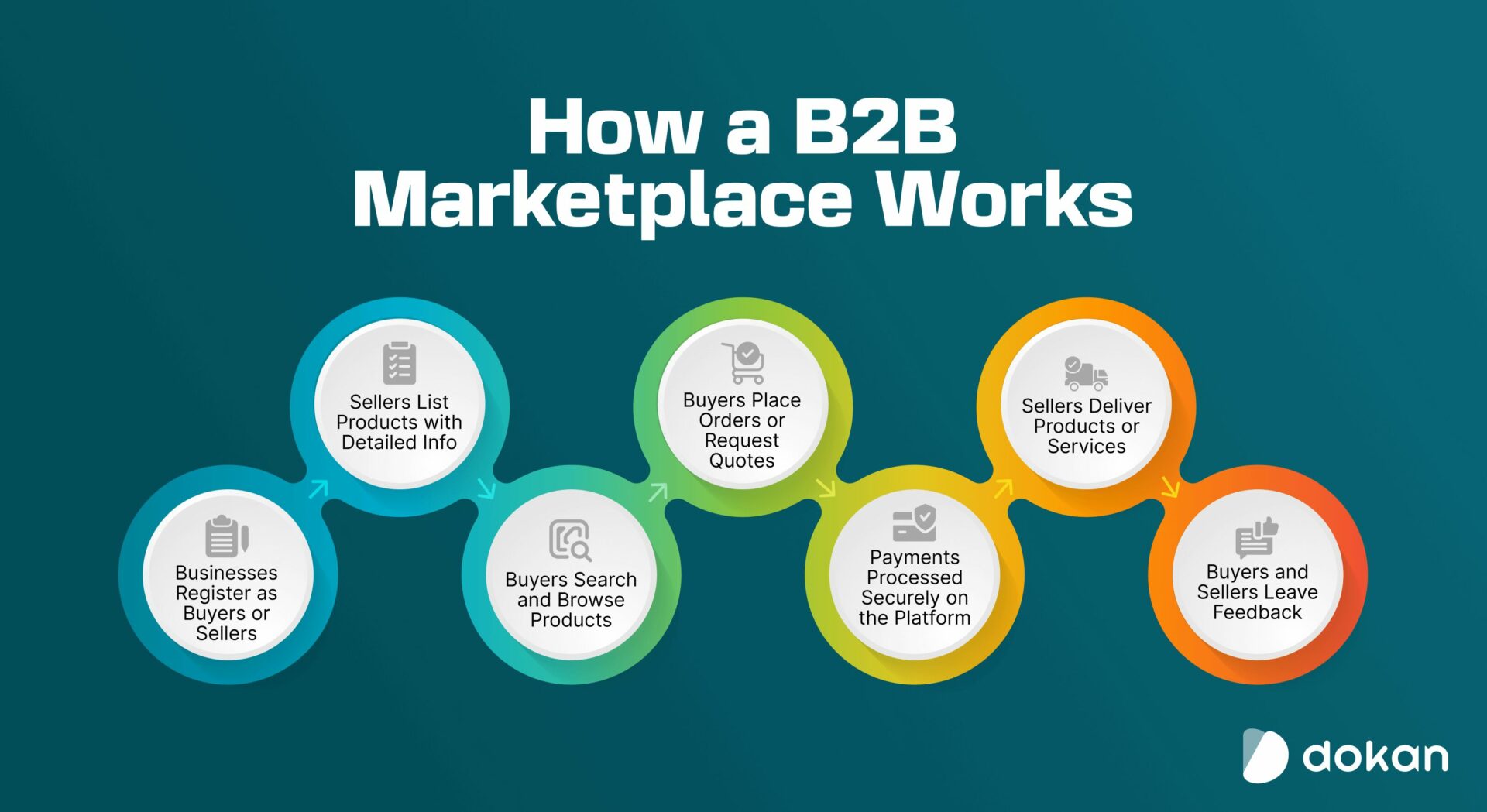

Now we are going to simplify the whole process into steps:
- Registration: Buyers and sellers create accounts on the marketplace. Sellers list their products or services, and buyers browse through the options.
- Product Listings: Sellers add details about their offerings, including descriptions, prices, and bulk order options.
- Search and Discovery: Buyers search for products or services using filters like price, category, or location.
- Order Placement: Once buyers find what they need, they place an order. Some platforms allow buyers to request custom quotes.
- Payments: The marketplace handles payments securely to ensure a smooth transaction process for both parties.
- Delivery and Fulfillment: Once the order is placed, sellers ship the products or deliver the services to the buyer.
- Feedback and Ratings: After completing the transaction, buyers and sellers can leave reviews which ultimately help build trust on the platform.
This is how a B2B marketplace works.
Key Features of a B2B Marketplace
When we are discussing what is B2B marketplace, it’s inevitable to talk about the key features of a B2B marketplace. If you’re looking for a B2B marketplace to buy or sell, or want to create a B2B marketplace, you should know what are the main features that a B2B marketplace must have.
So, here is the list of features that a B2B marketplace should offer you:
- Product Listings with Bulk Options
- Advanced Search and Filtering
- Request for Quote
- Secure Payment Systems
- Order Tracking and Management
- Feedback and Reviews
- Analytics and Insights
Want to explore more about each feature? Well, let’s get into it!
i) Product Listings with Bulk Options
In a B2B marketplace, sellers can create detailed product listings with descriptions, specifications, and pricing.
These listings often include bulk purchase options which allows businesses to buy products in larger quantities at more affordable prices. So, if a marketplace has this feature, that means it will help simplify bulk purchasing for businesses.
ii) Advanced Search and Filtering
Buyers can quickly and efficiently find the products or services they need by using the advanced search and filtering options available on the platform. Filters like price, category, location, and product specifications make it easy to narrow down results and find exactly what’s needed without wasting time.
iii) Request for Quote (RFQ)
A Request for Quote (RFQ) feature allows buyers to request customized pricing, terms, or quantity from sellers.
This is particularly useful for large orders or specialized products that may require additional negotiations. Sellers can then provide quotes, and both parties can finalize details within the marketplace.
iv) Secure Payment Systems
B2B marketplaces offer secure and reliable payment systems designed to protect both buyers and sellers.
These platforms integrate trusted payment gateways to ensure that transactions are smooth, secure, and compliant with industry standards. Businesses can complete payments safely and efficiently, no matter if it’s for a one-time purchase or recurring order.
v) Order Tracking and Management
Buyers and sellers can track orders and manage transactions easily through the marketplace. This feature provides real-time updates on order status, shipment tracking information, and other important details. It simplifies order management for businesses and helps ensure smooth and efficient operations.
vi) Feedback and Reviews
Feedback and review are other important features of a B2B marketplace. Using this feature, buyers and sellers can leave feedback and reviews for each other on the marketplace.
It helps build trust and transparency by providing a way for businesses to share experiences, confirm product quality, and make informed purchasing decisions.
vii) Analytics and Insights
Last but certainly not least – Analytics and Insights. Using this feature, sellers can access analytics and insights about their sales performance and customer interactions within the marketplace.
These analytics tools offer valuable data on sales trends, order volumes, customer behavior, and more, enabling businesses to optimize their strategies and operations. Buyers can also benefit from insights into supplier performance and order history.
Benefits of a B2B Marketplace for Admin, Buyer, and Seller
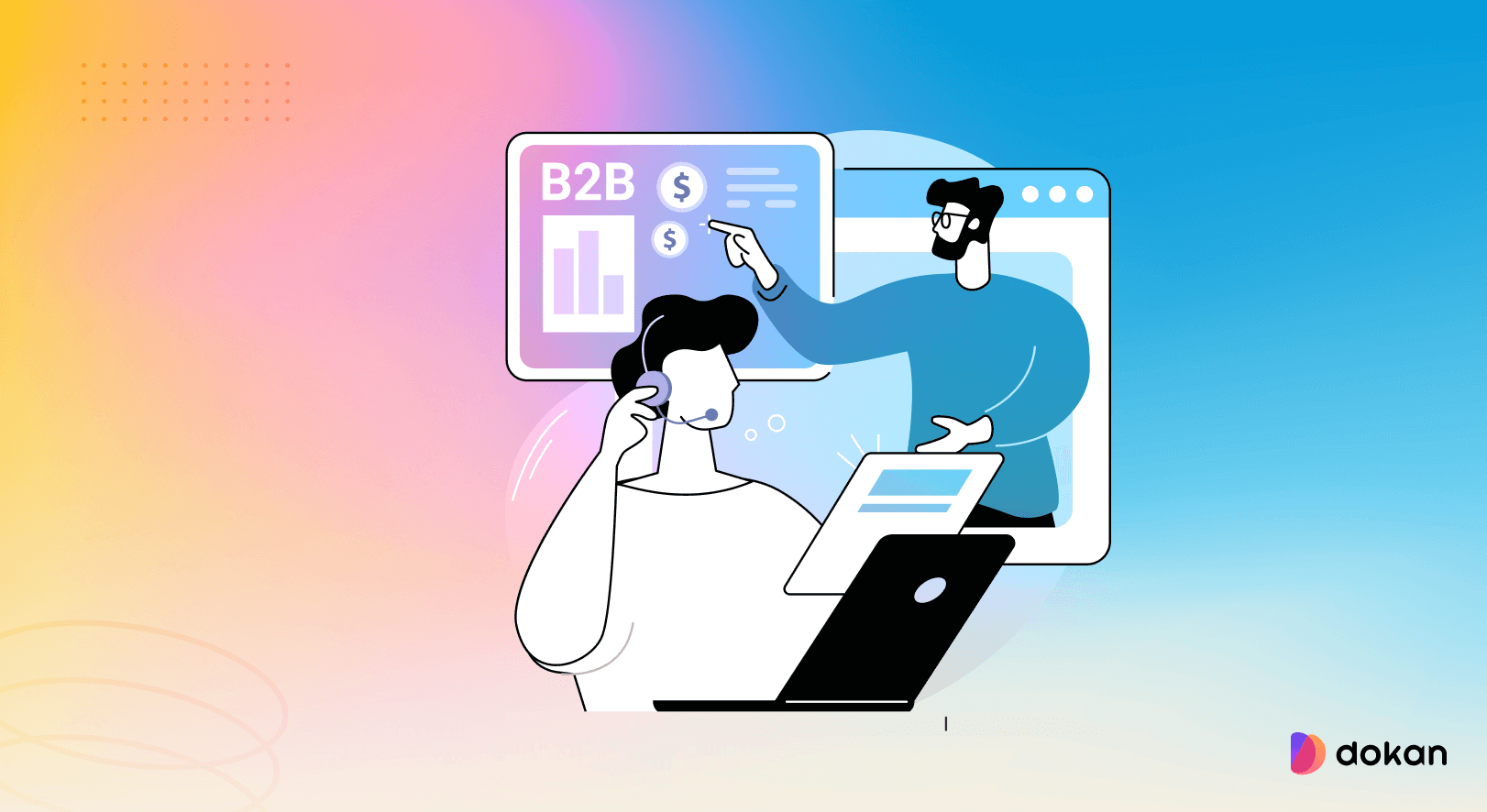

The B2B industry is growing. Because it comes with the benefits that are required for a buyer and seller to smoothly complete their transactions. Here we are going to discuss about benefits that a B2B marketplace comes up with:
I. Benefits for a Buyer to Use a B2B Marketplace
B2B marketplaces make it easier for buyers to find suppliers, compare prices, and streamline the purchasing process. Here are the main benefits for buyers:
a) Access to a Wide Range of Suppliers
Buyers can browse through a diverse range of suppliers and products in one place to save time and effort. It allows them to easily compare options to ensure they find the best deals that suit their business needs.
b) Simplified Procurement Process
B2B marketplaces centralize the buying process, so buyers don’t need to deal with multiple suppliers and complicated procedures. Everything from product search to payment is handled in one platform which improves efficiency.
c) Bulk Buying Discounts
Many B2B marketplaces offer bulk buying options, which allow buyers to purchase large quantities of products at discounted prices. This feature helps businesses save money on inventory and improve their overall purchasing efficiency.
d) Transparent Pricing and Reviews
Buyers can view detailed product listings, including prices and reviews, which help make informed decisions. Transparent pricing ensures that buyers can compare offerings from different suppliers without hidden costs, while reviews provide insights into the quality and reliability of products.
e) Secure Payment Methods
B2B marketplaces offer secure payment systems to ensure that buyers’ transactions are safe. Integrated payment gateways also simplify the process and reduce the need for complex invoicing or wire transfers.
II. Benefits for a Seller to Use a B2B Marketplace
Selling on a B2B marketplace opens up several opportunities for businesses to help them reach more customers and improve sales performance. Let’s find some benefits for a seller to use a B2B marketplace:
a) Increased Market Reach
Sellers can expand their market reach by listing their products on a global marketplace. It allows them to connect with businesses beyond their local area. This increases their exposure and potential sales.
b) Simplified Order Management
B2B marketplaces offer tools to manage orders, track shipments, and handle customer communication. This makes the entire selling process more organized and efficient. it helps sellers focus on growing their business rather than managing logistics.
c) Access to Business Insights
Sellers gain access to valuable analytics, such as sales performance and customer behavior, which can help improve their strategies. These insights help businesses make data-driven decisions, which improve their competitiveness in the marketplace.
d) Trusted Platform for Transactions
Being part of a reputable B2B marketplace gives sellers a sense of trust and credibility. The platform’s security features and review systems help build confidence among buyers. As a result, they are more likely to choose your products.
Benefits for an Admin to Create a B2B Marketplace
Creating and managing a B2B marketplace offers business owners multiple advantages, including:
a) Revenue Generation from Transactions
Admins can generate revenue through transaction fees, membership plans, or advertising. It makes running a B2B marketplace a potentially profitable venture.
b) Control Over the Platform’s Growth
As the owner of a B2B marketplace, you have control over the platform’s features, design, and growth. This flexibility allows you to continually enhance the user experience and add new functionalities based on market needs.
c) Data Access for Strategic Decisions
Admins have access to valuable platform data, including transaction histories, user behavior, and sales trends. This data helps businesses make informed decisions, improve operations, and optimize the platform’s performance.
Main Types of B2B Marketplace
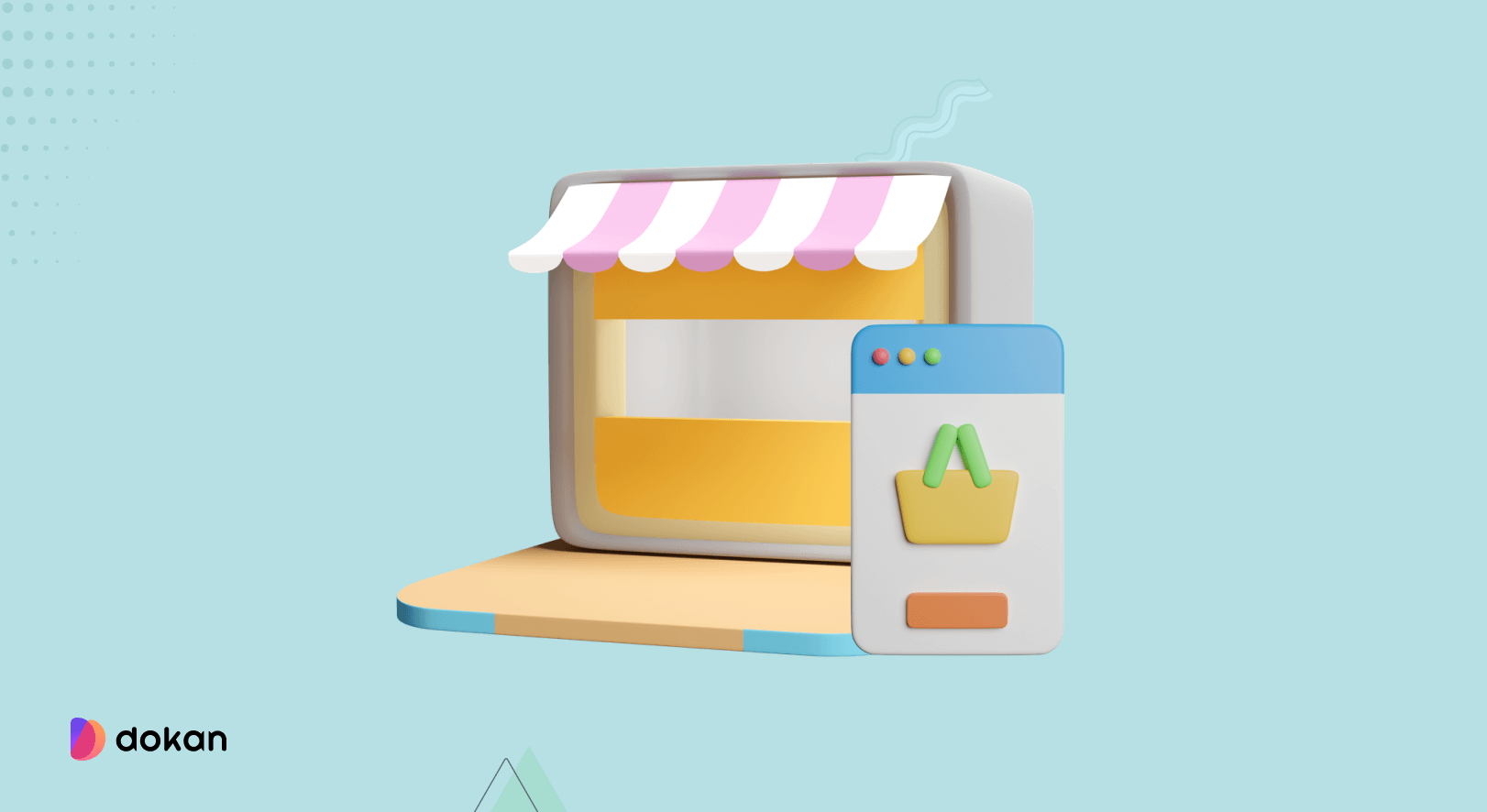

There are mainly 5 types of B2B marketplace. They are the:
- Supplier-Oriented Marketplace
- Buyer-Oriented Marketplace
- Intermediary Marketplace
- Vertical Marketplace
- Horizontal Marketplace
Let’s get into the details!
i) Supplier-Oriented Marketplaces
Supplier-oriented marketplaces focus on suppliers and manufacturers listing their products for sale. These platforms are typically designed for businesses looking to sell their products to buyers in bulk or at a larger scale.
They are great for suppliers wanting to reach a broader audience and for buyers who need to source a wide range of products from multiple vendors.
Example: Alibaba, where manufacturers and suppliers list their products for buyers worldwide.
ii) Buyer-Oriented Marketplaces
Buyer-oriented marketplaces are designed with the buyer’s needs in mind. These platforms enable buyers to request quotes, negotiate prices, and directly contact sellers. They are ideal for businesses looking to procure specific products from various sellers to offer flexibility in purchasing.
Example: ThomasNet, which connects buyers with suppliers of industrial products and services.
iii) Intermediary Marketplaces
Intermediary marketplaces act as middlemen which connect buyers and sellers and manage the transaction process. They often offer added services such as payment processing, dispute resolution, and quality control to facilitate business transactions.
Example: Amazon Business, which connects businesses with various sellers while managing payments and fulfillment.
iv) Vertical Marketplaces
Vertical marketplaces focus on specific industries or niches. They offer specialized products and services designed to meet the unique needs of businesses within a particular industry.
Example: Grainger, a vertical marketplace for industrial supplies that focuses on the manufacturing and maintenance industries.
v) Horizontal Marketplaces
Horizontal marketplaces serve a wide range of industries and offer a broad spectrum of products and services. These platforms are ideal for businesses that operate across multiple sectors.
Example: eBay, where businesses from different sectors can sell their products to other businesses.
Wondering what’s the difference between horizontal and vertical marketplace? Check out our blog on vertical vs horizontal marketplace to know everything about it!
Popular B2B Marketplace Platforms Around the World
There are many popular B2B marketplaces available online around the world. Here are some of the most widely used platforms to check for you:
1. Alibaba


Alibaba is one of the largest global B2B marketplaces that connects manufacturers and suppliers with buyers across the world. It specializes in bulk purchasing and provides features like product customization, supplier verification, and secure payment options. Businesses of all sizes use Alibaba to source goods, from raw materials to finished products.
2. Amazon Business
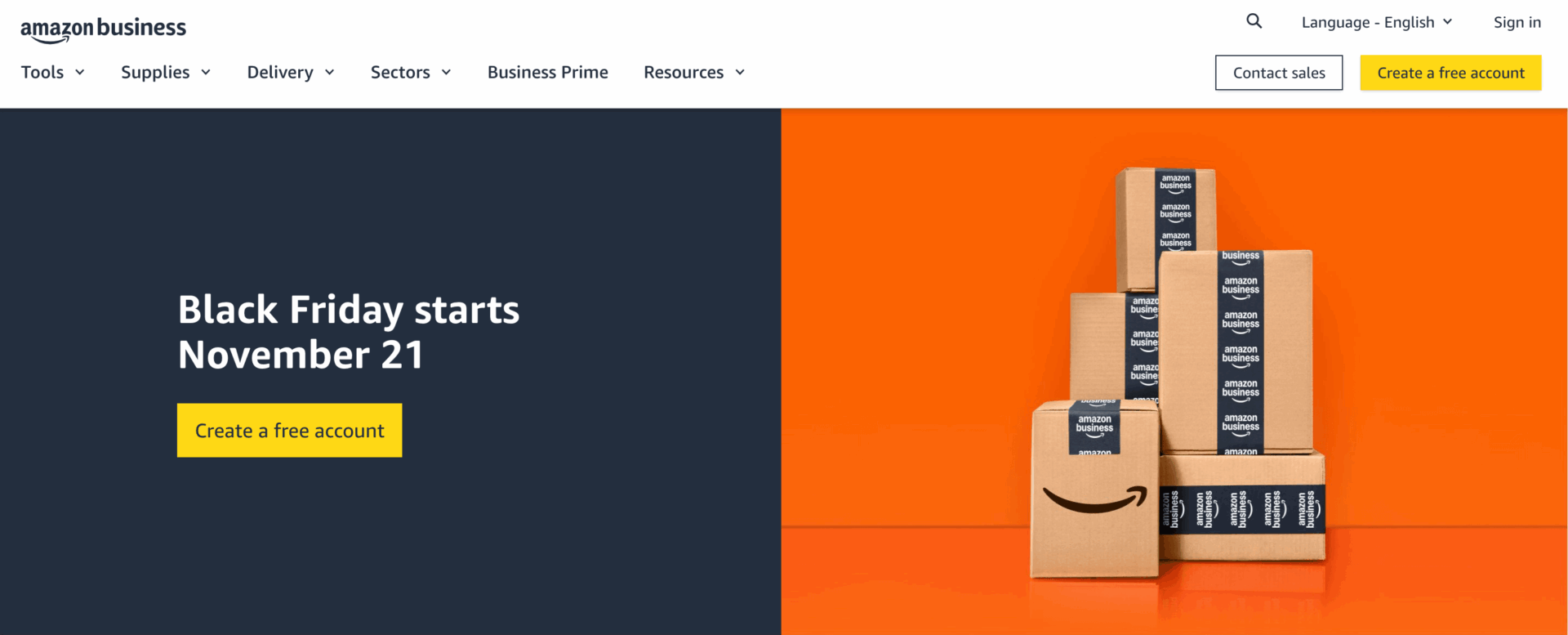

Amazon Business is a trusted B2B platform offering a wide variety of products across multiple industries. It provides features like bulk purchasing, business-exclusive pricing, and tax-exempt purchasing options. The platform is ideal for businesses looking to streamline procurement and manage orders through one interface.
3. ThomasNet
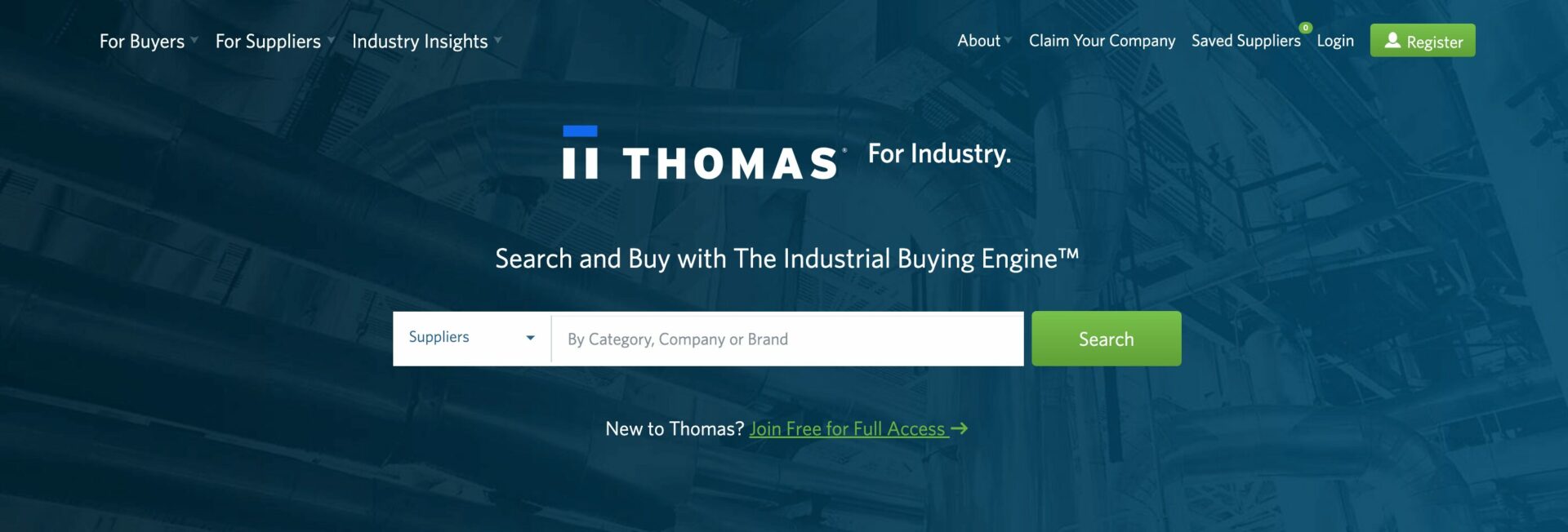

ThomasNet is a well-known B2B marketplace for industrial goods and services. It connects buyers with suppliers specializing in manufacturing, engineering, and related industries. The platform offers detailed supplier information to make it easy for buyers to evaluate vendors and establish reliable partnerships.
4. TradeIndia
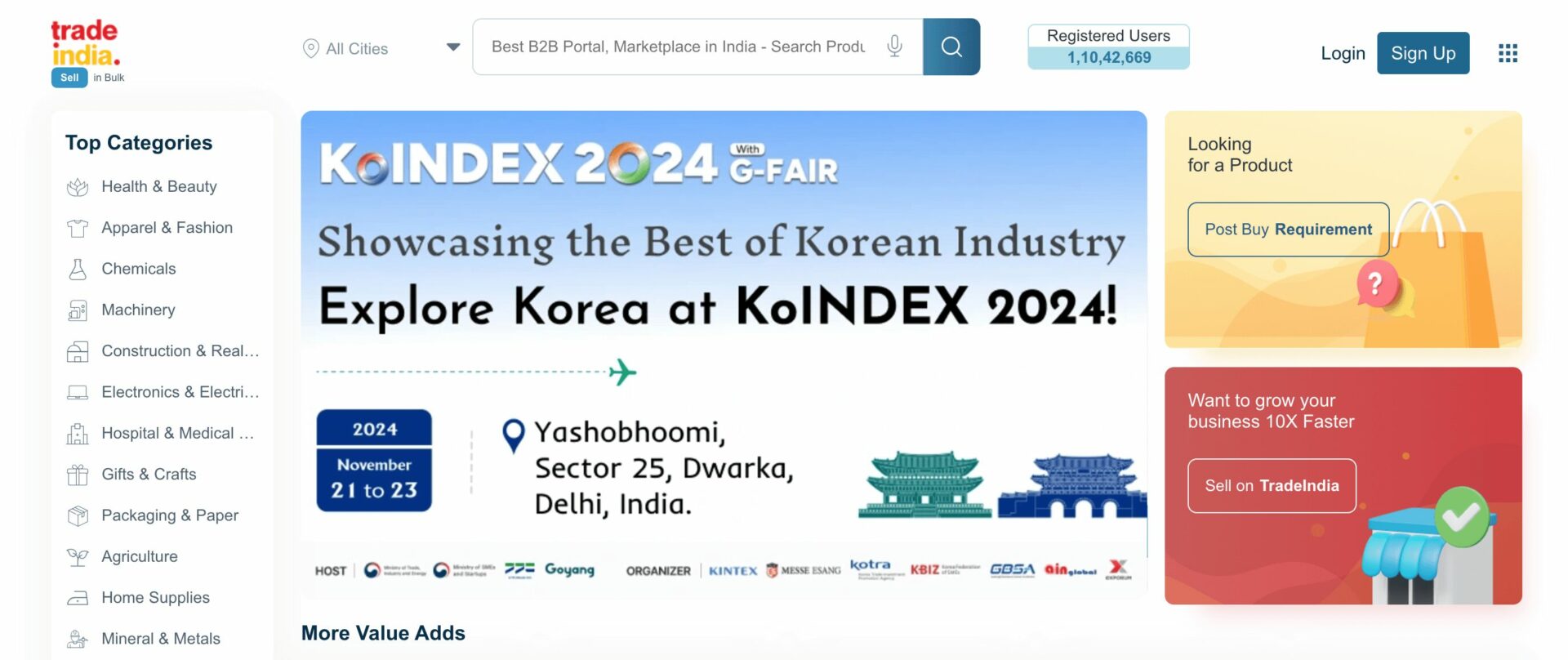

TradeIndia is an India-based B2B platform catering to manufacturers, suppliers, and exporters. It serves a wide range of industries, from agriculture to electronics, and offers tools like product catalogs, RFQ options, and verified supplier profiles. This platform is especially popular among Indian businesses seeking domestic and international trade opportunities.
5. GlobalSources
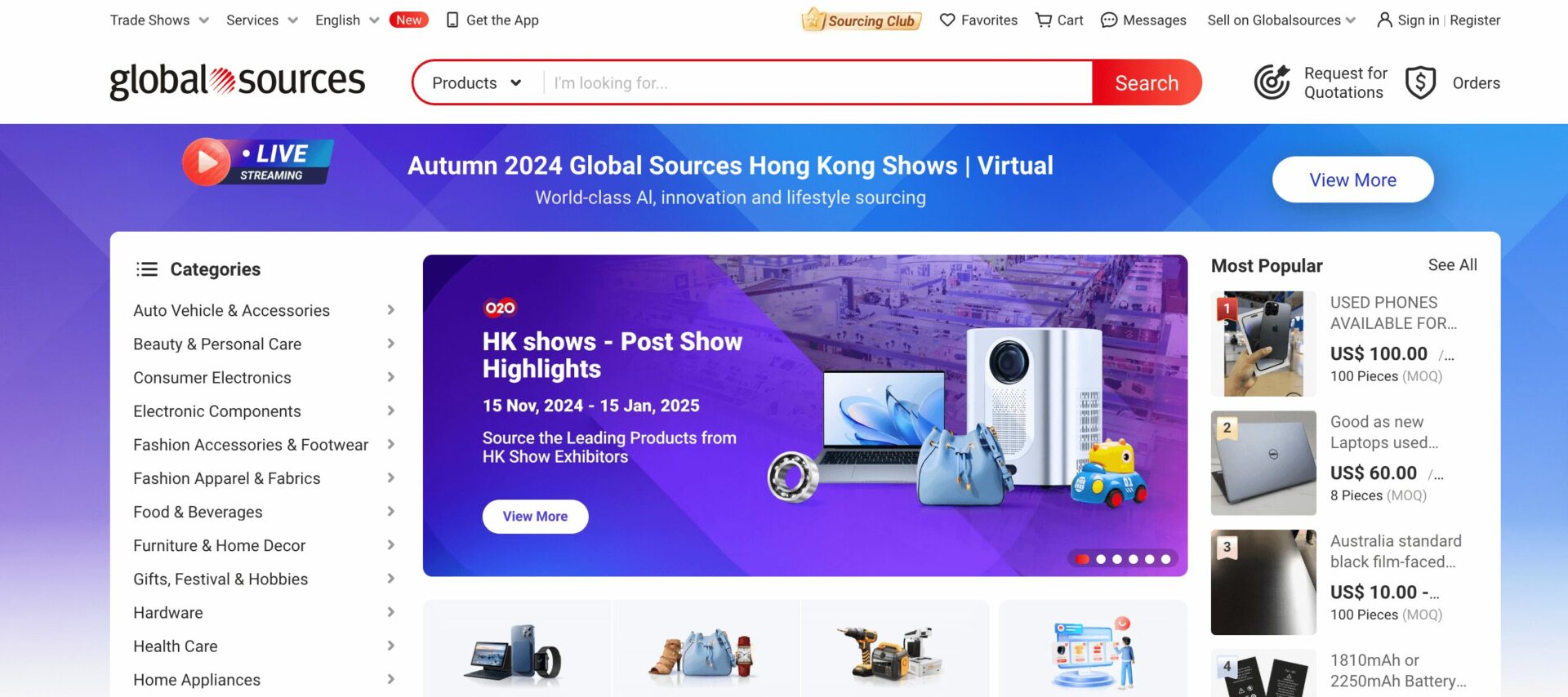

GlobalSources is a Hong Kong-based B2B marketplace that focuses on connecting Asian suppliers with international buyers. It specializes in consumer electronics, fashion, and home goods. The platform offers features like supplier verification and live sourcing events to help businesses find reliable partners.
What is a B2B Marketplace – Ending Note
The B2B approach is now an important business model for businesses to save time, connect with other businesses, and make buying or selling easier. They help buyers and sellers work together and make business deals simpler.
Do you want to create a B2B marketplace on your own and earn commissions as a platform owner?
The Dokan Cloud makes the whole process easier for you even if you’re not a technical person. Just register to Dokan Cloud, design your marketplace using the drag-and-drop feature, and invite buyers and sellers to your marketplace.
Yes, it’s that easy!
Now if you have any further queries regarding – What is a B2B marketplace, feel free to share them with us using the comment box below. We would love to know your opinion. Take care!
Subscribe to
Dokan blog
We send weekly newsletters, no spam for sure!


[ad_2]
منبع:dokan



